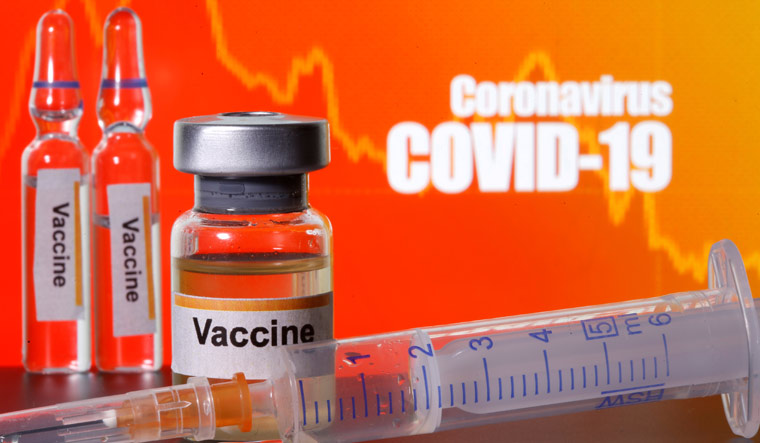Vaccines for respiratory viruses do not offer 100 per cent protection and that may just be the case for a COVID-19 vaccine, too. For a good vaccine, the criteria for evaluation rest on safety, immunogenicity and efficacy, said Dr Balram Bhargava, director general, ICMR.
“Even the WHO says that if the efficacy is over 50 per cent, then the vaccine is acceptable. We are aiming for 100 per cent, but we may get anywhere from 50 to 100 per cent,” Bhargava told media. In a draft note on regulatory guidelines on vaccine development released by Central Drugs Standards Control Organisation, the drug regulator has specified that to ensure that a widely deployed COVID-19 vaccine is effective, “the primary efficacy endpoint estimate for a placebo-controlled efficacy trial should be at least 50 per cent”.
This in line with the WHO's requirements for a COVID-19 vaccine, too. The minimum requirement for a COVID-19 vaccine is a good safety profile, and at least 30 per cent protection at the population level, Dr Soumya Swaminathan, chief scientist, WHO, had told media on an earlier occasion. For many vaccine candidates, Swaminathan said, Phase III is only the beginning, and it will be the real test of their efficacy. “Our target product profile requires (ideally) an efficacy of 50 per cent with a lower bound of 30 per cent. This is because we do not want to be in a position with multiple vaccines with sub-optimal efficacy being used. [That] Will not solve the pandemic,” she said.
In India, besides the Oxford-Astra Zeneca vaccine candidate that is currently undergoing Phase 3 trials, the Russian vaccine candidate, Sputnik V, is also set to undergo phase 3 trials, after the Russian scientists published the results of the phase 1/2 studies in the Lancet.
The 40-page draft note on regulatory framework for vaccines in India also says that issues such as the importance of animal models for testing a COVID vaccine, testing for COVID-19 vaccine associated Enhanced Respiratory Disease (ERD), issues such as enrolling pregnant women in clinical trials for a vaccine developmental and reproductive toxicity studies would need to be conducted prior to enrolling them, monitoring safety data and post-marketing surveillance for any adverse events.
To ensure the vaccine safety and effectiveness of marketed vaccine, post marketing assessment may be carried out in several ways, the document reads. These include a Phase IV (post marketing trial), post-marketing surveillance through observational study for active surveillance, and post-marketing surveillance including assessment of diverse events following immunisation and adverse events of special interest. Union health secretary Rajesh Bhushan told media that the draft was not final, and had only been put out in public domain for comments and could be altered based on feedback.
Until a vaccine, though, masks had been proven to offer the biggest guarantee of protection, Dr V K Paul, member, Niti Aayog said at the health ministry's COVID-19 briefing. Paul said that given the upcoming festival season, people should avoid large gatherings and crowded places, practise hand hygiene and wear masks. The nature of the virus is that it spreads easily among crowds, and unless adequate precautions are taken, the situation could get explosive, Paul cautioned.



